Compensatory vs. Punitive Damages: Knowing the Differences
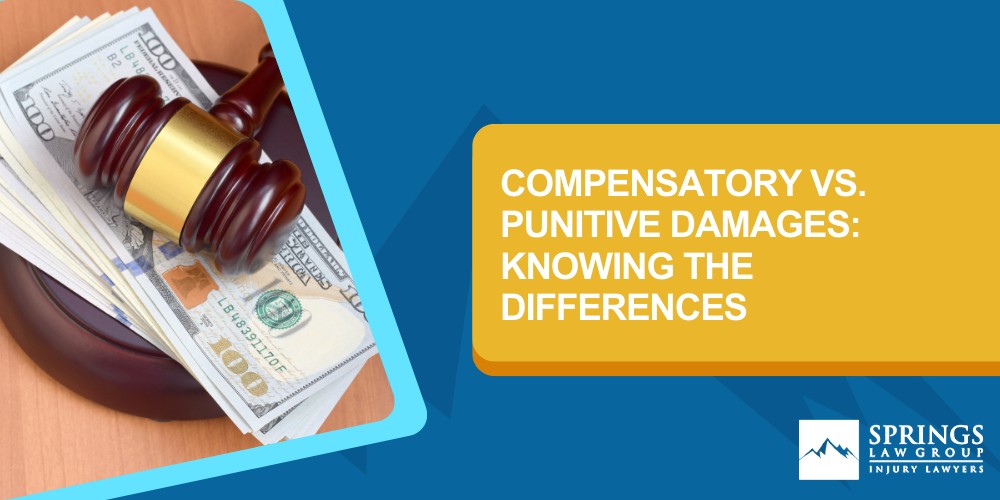
After a personal injury accident, you may wonder what financial compensation you’re entitled to receive.
You’ll likely receive compensation for several different types of damages. Two of the most common are compensatory and punitive damages.
It may be helpful to learn what these types of damages are, so you have a better idea of what you’ll earn.
Of course, every case is different, so it’s difficult to determine your exact settlement amount.
Consult with a personal injury lawyer to learn more about damages and how much compensation you can earn for your case.
If you or someone you know has been injured in Colorado Springs, contact Springs Law Group to schedule your free consultation. We’re here for you every step of the way.
What Are Compensatory Damages?
Compensatory damages are given to the plaintiff to help them recover from the accident. The purpose of compensatory damages is to make up for any losses the victim experienced due to the incident.
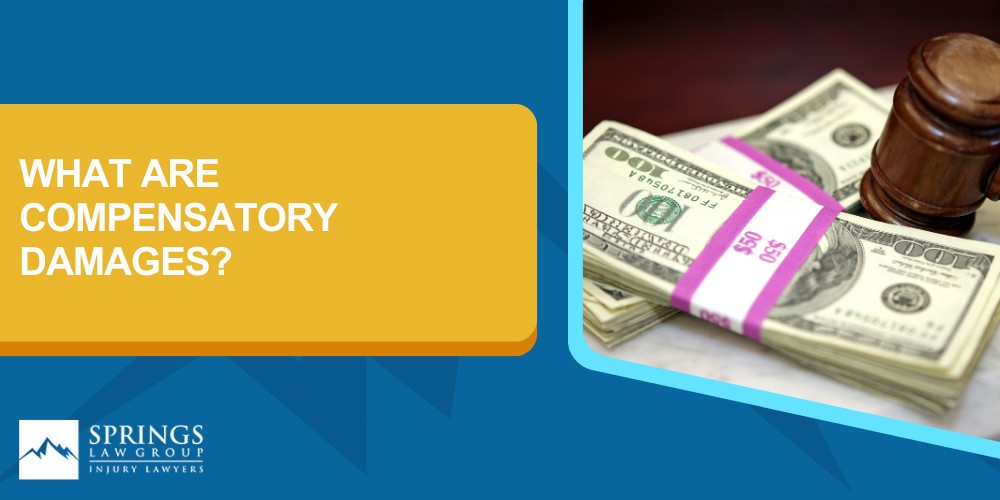
Compensatory damages cover both economic and non-economic losses.
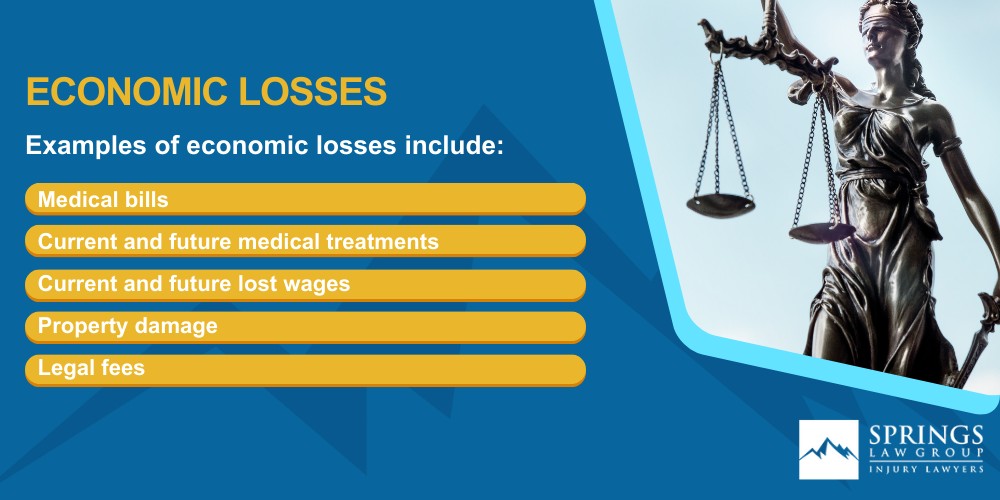
Examples of economic losses include:
- Medical bills
- Current and future medical treatments
- Current and future lost wages
- Property damage
- Legal fees
- Increased living expenses due to injuries
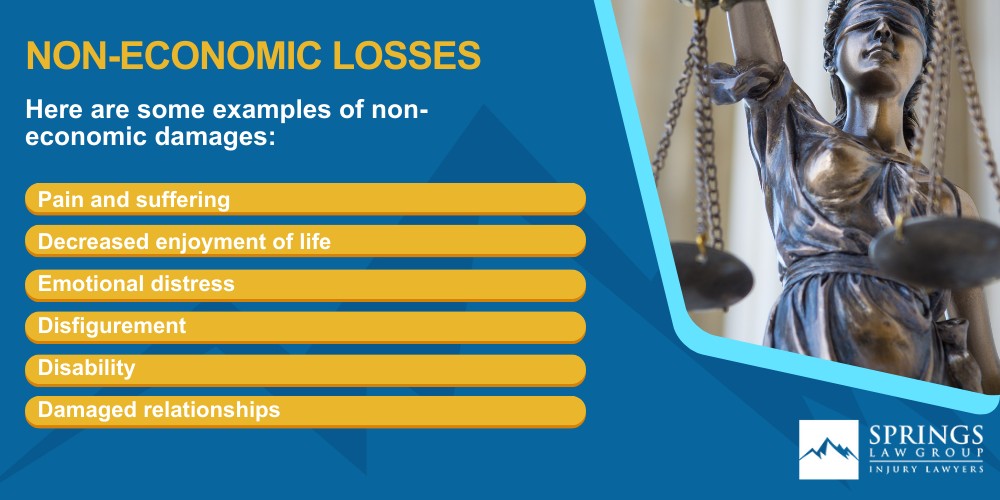
Here are some examples of non-economic damages:
- Pain and suffering
- Decreased enjoyment of life
- Emotional distress
- Disfigurement
- Disability
- Damaged relationships
Compensatory damages are the most common damages plaintiffs receive rewards for in personal injury cases. The amount of compensatory damages you receive depends on your specific case.
For example, you may be rewarded more if your damages are severe and require expensive medical treatment.
What Are Punitive Damages?
Punitive damages are not as common as compensatory damages and are meant to punish the negligent party. These damages are typically rewarded when the defendant was being negligent, and their recklessness caused the accident.
A typical example of this is a drunk driving incident. Usually, the plaintiff must prove that the defendant was negligent to earn punitive damages.
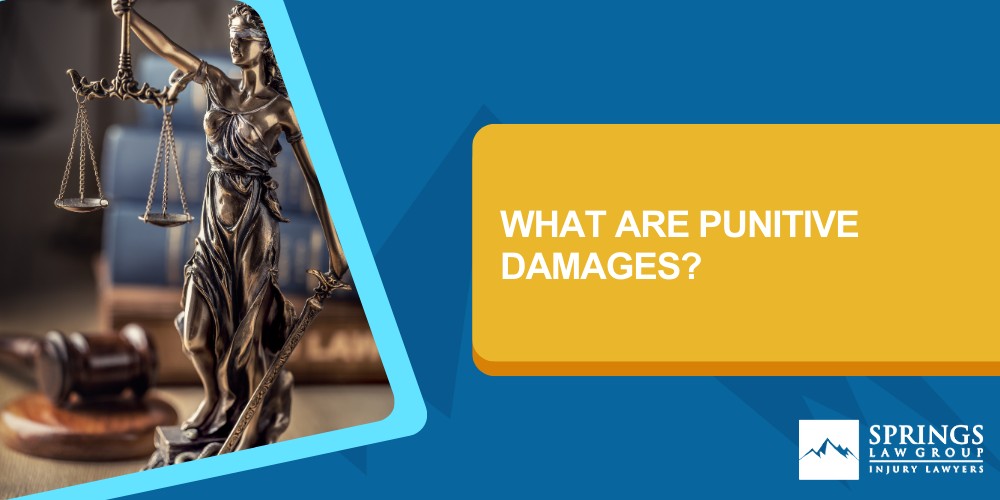
Punitive damages discourage the defendant from acting carelessly or committing crimes in the future. The negligent party pays for punitive damages, which is why these damages deter the at-fault party from making the same mistakes.
Compensatory Damages vs. Punitive Damages
The main difference between compensatory and punitive damages is the intent. The intent of compensatory damages is to help the plaintiff recover financially after the accident.
This is why compensatory damages cover medical expenses, lost wages, and other finances.
On the other hand, the intent of punitive damages is to punish the defendant. If your personal injury case involves gross negligence or intentional harm from the at-fault party, it’s more likely that you’ll receive punitive damages in addition to compensatory damages.
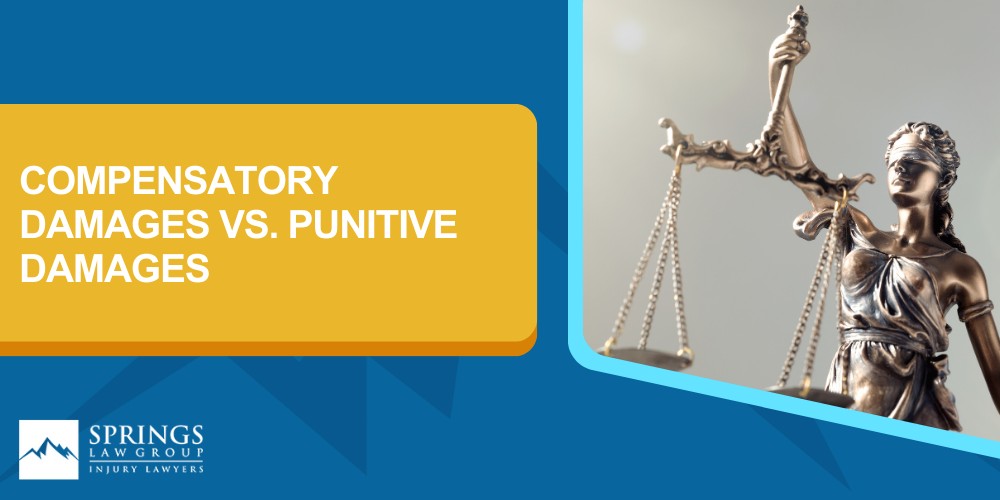
The court decides whether or not the defendants should pay punitive damages based on their actions. The goal is to punish the at-fault party, so they don’t act carelessly or commit the same crimes later. This can also deter other people from acting similarly.
Another main difference is calculating punitive damages versus compensatory damages. Calculating compensatory damages is usually easier because you can provide proof of lost wages, medical bills, and property damages.
However, punitive damages are awarded based on pain and suffering. It’s much more complex to prove you’ve experienced emotional trauma or decreased quality of life.
FAQS About Compensatory Vs. Punitive Damages
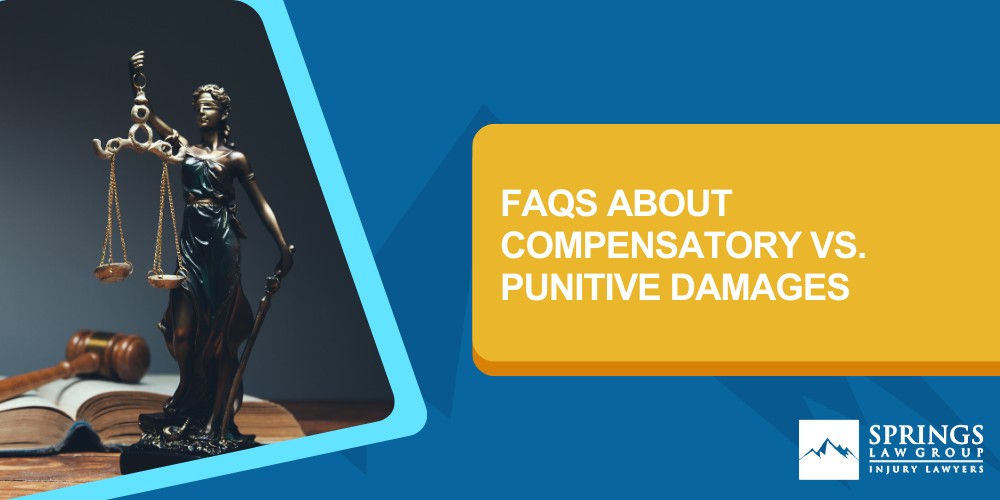
Is there a limit on punitive damages?
In Colorado, there is a limit to punitive damages. The reward cannot go above the compensatory damages that the plaintiff receives.
For instance, if the plaintiff earns $50,000 in compensatory damages, they can only receive up to $50,000 in punitive damages.
How can an attorney recover more damages for me?
If you work with a personal injury attorney, they can likely recover more damages for you. They can negotiate the settlement amount with the insurance company to increase your compensation.
If that doesn’t work, you may have to go to court.
In court, your lawyer will represent you and provide evidence that proves your damages. With evidence—such as medical reports, witnesses’ accounts, and police reports—your lawyer can prove negligence, thus rewarding you for both compensatory and punitive damages.
Can I earn punitive damages without compensatory damages?
In most cases, you can’t earn punitive damages without compensatory damages. Punitive damages are usually rewarded when the defendants act so recklessly that the compensatory damages won’t cover all of the plaintiff’s damages.
If you don’t receive any compensatory damages, then it’s unlikely that you’ll earn punitive damages.
Contact a Personal Injury Lawyer Near You
At Springs Law Group, we’re here to help you during your road to recovery. We understand that money can’t always compensate for what you lost due to an accident, but you still deserve financial compensation for your damages.
We’ll stand by your side to ensure you earn fair compensation that matches your compensatory and punitive damages.

Contact a Colorado Springs personal injury lawyer from Springs Law Group to schedule your free consultation and discuss your legal options.
